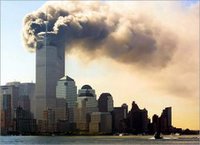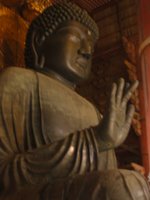
A Model for the Advocacy of Terror
...and the active creation of a double-standard in the public mind...
Hypothesis - The advocacy of terror is actively pursued by the U.S. government and the mass media, though not without being manipulated so that the end product comes out looking very different from the original act.
Analysis - How is this done? It is an active process that underlies the relationship between the official line and the media, wherein a double-standard is created whose divisions justify and simultaneously disguise U.S. actions. The model below describes the process…
scenario? | a ‘terrorist act’ | a ‘terrorist act’ |
instigator? | U.S./U.S. client-state | a perceived ‘enemy’ |
interpretation? | spreading democracy; pursuing the ‘national interest’ | terrorism |
typical U.S. media response? | ignore the effects on the local population; highlight those facts that advance the U.S. cause; severity of actions and consequences downplayed; background causes leading up to action covered (only insofar as it creates legitimacy) | press swarms to vilify ‘the enemy’; effects on local population examined in detail; possible causes leading up to ‘terrorist act’ ignored (might implicate the U.S.); severity of action exaggerated |
effects? | legitimizes U.S. action; further regimentation of the public mind | justification for retaliation legitimized; further regimentation of the public mind |
result? | one side of the double-standard created | the other side of the double-standard created |
Implications - Combining the official interpretation with the media response results in the regimentation of the public mind, such that a double-standard is created for what is in fact fundamentally the same thing-an act of terrorism. This might cause us to rethink the idea of the ‘free press’, and instead see it more in terms of its actual function, which is to legitimize the actions of those whose interests it serves. Indeed, it might even cause us to rethink history itself…
~ Suvian Quilmann


